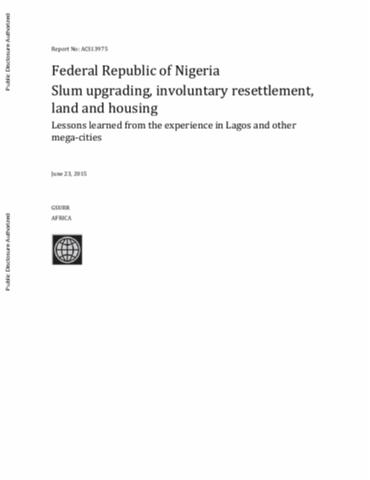Six Case Studies of Economically Successful Cities
The objective of this paper is to synthesize the findings of six individual case studies (Bucaramanga, Colombia; Coimbatore, India; Kigali, Rwanda; Gaziantep, Turkey; Changsha, China; and Tangier, Morocco) by analyzing the similarities and dissimilarities among them and identifying common, cross-cutting themes. The intent is to highlight what institutions and strategies successful cities have relied on to spur
economic development, under what conditions such success has occurred, and what lessons of this experience might be applicable to decision makers in other cities.





